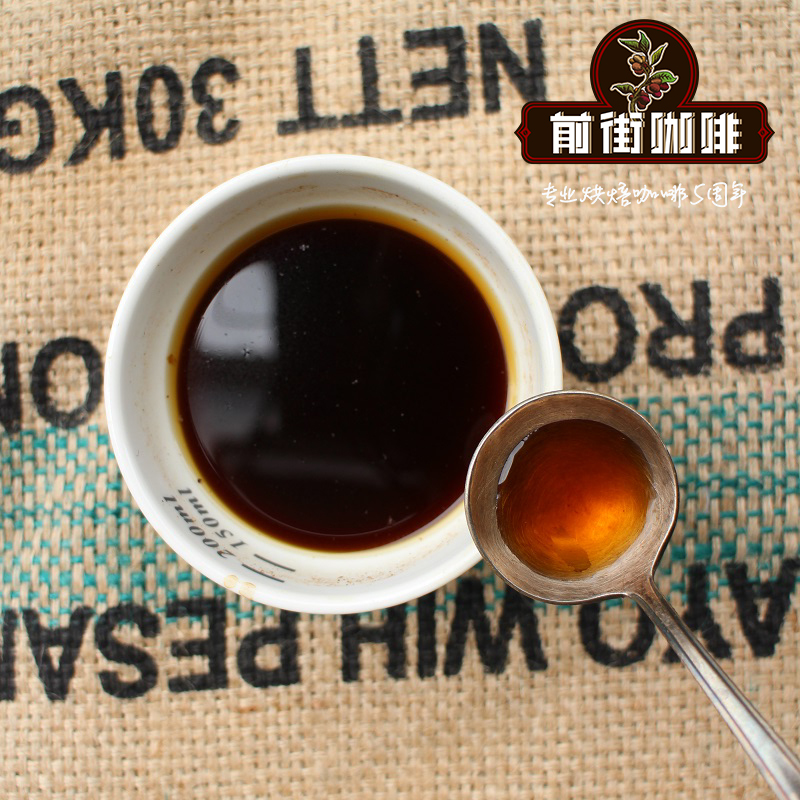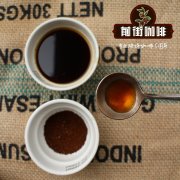Understand the flavor and taste of coffee in Cuba's famous producing areas. Three major brands of Cuban coffee.

Professional coffee knowledge exchange more coffee bean information please follow the coffee workshop (Wechat official account cafe_style)
Cuba, which has been growing coffee since 1820, is famous for producing high-quality coffee with a long history. At that time, coffee beans were the number one exporter in the country, which was more than the "sugar" necessary for life. In the late 19th century, the price of local coffee plummeted due to factors such as government policy and the chaos of the international political situation, so farmers switched to grow other crops.
Most coffee farms in Cuba are state-owned, but in 1990 the government released part of the land for original coffee farmers to grow, but coffee production is still not as high as in previous years, so the opportunity to obtain high-quality Cuban coffee is rare. The planting area of Cuban coffee is divided into three parts, which are planted on the slopes and valleys above sea level from 1000 to 2000 meters above sea level, with the largest proportion of Santiago de Cuba and Granma in the east accounting for 70% of the country, followed by the central villa Clara and Sancti Spiritus accounting for 20%, and the western Pinar del Rio accounting for 10%. These areas provide a quite comfortable growing environment for coffee beans, with an average temperature of 21 degrees in winter and 25 degrees in summer. The rainfall is moderate, the humidity is evenly distributed all the year round, and the soil is deep and fertile. All planted Arabica varieties.
Crystal Mountain Coffee is world-famous due to its author, famous writer Hemingway, and depends on its unique taste and rich flavor. Its unique taste comes from the soil cultivated by the unique microclimate of Cuba's local Cambra Mountains.
The fertile soil, mild climate and frequent torrential rains give this classic coffee bean a perfect balance of elegant aroma, delicate sweetness and taste.
Elephant bean is a mutant of typica introduced from France. It is characterized by large particles and bright and shiny colors. The taste is stable. The taste is sour and slightly bitter. The sweetness is balanced. Coffee beans with the lowest Coffeine (caffeine) content. It is a kind of bean with light and mild taste. Among all the producing areas, Cuba (commonly known as the Blue Mountains of Cuba) has the best quality, and the color of Cuban coffee is bright green. The grades are divided into ETL (extra Super Class), TL (Middle Pole) and AL (ordinary) according to the size of coffee beans.
Cuban Crystal Mountain Coffee is a typical island bean with a clean and delicate taste, slightly sour but not strong but long-lasting, with a sweet finish.
The natural washing method is adopted, and the coffee beans are dried by the sun method in the latter stage, there are few defective beans and empty shell beans, and the moisture content of coffee beans is high.
Variety: Tiebika
Dried incense: Chinese wolfberry, big cucumber, fresh cream, light cloves, cedar, maple syrup sweet, vanilla, fresh root, white grape
Wet incense: tangerine peel, sweet orange, rice incense, Hawthorn, cream, white grape, gin
Palate: fragrant type
After rhyme: strong nose, long throat, long aroma of cucumber and Hawthorn, obvious sweetness
Important Notice :
前街咖啡 FrontStreet Coffee has moved to new addredd:
FrontStreet Coffee Address: 315,Donghua East Road,GuangZhou
Tel:020 38364473
- Prev

What is caffeic acid? what is the composition of caffeic acid? how does it affect coffee flavor?
Professional coffee knowledge exchange more coffee bean information Please pay attention to the coffee workshop (Wechat official account cafe_style) there are many factors that affect coffee flavor: coffee bean variety, roasting, brewing strategy, coffee bean handling methods, however, when you divide these factors again and again, the resulting coffee flavor is all related to a class of substance compounds. The way coffee is baked. Coffee.
- Next

Cuban Coffee Fine beans-what kind of Coffee is Crystal Mountain Coffee? how do you brew Cuban coffee?
Professional coffee knowledge exchange more coffee bean information please follow the coffee workshop (Wechat official account cafe_style) Cuba is familiar with and distant countries, familiar with the Cuban baseball team often win all levels of baseball world championships, far away is Cuba on the other side of the world in the beautiful Caribbean, coffee and other Cuban agriculture are managed by the state, often with banana sugar cane
Related
- Beginners will see the "Coffee pull flower" guide!
- What is the difference between ice blog purified milk and ordinary milk coffee?
- Why is the Philippines the largest producer of crops in Liberia?
- For coffee extraction, should the fine powder be retained?
- How does extracted espresso fill pressed powder? How much strength does it take to press the powder?
- How to make jasmine cold extract coffee? Is the jasmine + latte good?
- Will this little toy really make the coffee taste better? How does Lily Drip affect coffee extraction?
- Will the action of slapping the filter cup also affect coffee extraction?
- What's the difference between powder-to-water ratio and powder-to-liquid ratio?
- What is the Ethiopian local species? What does it have to do with Heirloom native species?

